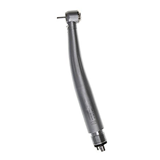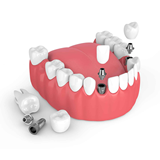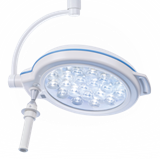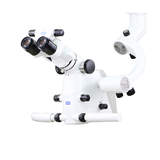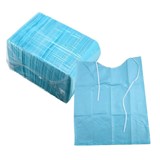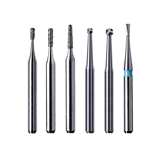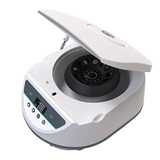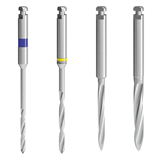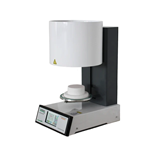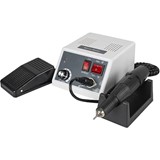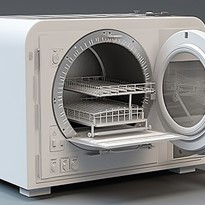When it comes to purchasing dental autoclaves and benchtops, making the right decision is crucial. Autoclaves play a vital role in dental practices, ensuring the proper sterilization of instruments and equipment. With several options available in the market, it's important to consider certain factors that can influence your buying decision. In this comprehensive guide, we will explore the key factors to consider when buying dental autoclaves and benchtops to help you make an informed choice.
Understanding Dental Autoclaves and Benchtops
Dental autoclaves and benchtops are specialized devices used for sterilizing instruments, equipment, and materials in dental practices. These compact and efficient machines utilize high-pressure steam to eliminate harmful microorganisms, ensuring the safety and hygiene of dental tools. Autoclaves are essential in preventing the spread of infections and maintaining strict sterilization protocols in dental clinics.
Importance of Dental Autoclaves and Benchtops
Having reliable dental autoclaves and benchtops is of utmost importance in dental practices. These devices provide a convenient and effective method for sterilization, reducing the risk of cross-contamination and infection transmission. With the ability to penetrate even hard-to-reach areas, dental autoclaves ensure thorough sterilization, enhancing patient safety and maintaining the highest standards of hygiene.
4 Types of Dental Autoclaves and Benchtops
There are different types of dental autoclaves and benchtops available in the market, each with its specific features and applications. Let's explore some of the common types:
-
Steam Autoclaves: Steam autoclaves utilize high-pressure steam to achieve thorough sterilization. They are versatile and widely used in dental practices for sterilizing instruments, handpieces, and other dental tools.
-
Vacuum Autoclaves: Vacuum autoclaves use a vacuum pump to remove air from the chamber before sterilization, ensuring efficient sterilization cycles and better air removal. They are particularly useful for sterilizing hollow instruments and porous materials.
-
Class B Autoclaves: Class B autoclaves are advanced sterilization systems that meet strict standards and regulations. They are capable of sterilizing a wide range of instruments, including handpieces, dental implants, and surgical tools.
-
Benchtop Autoclaves: Benchtop autoclaves are compact and portable, making them ideal for smaller dental practices with limited space. They offer efficient sterilization capabilities while occupying minimal space on the dental bench.
Factors to Consider When Buying a Dental Autoclave
When purchasing a dental autoclave, there are several important factors to consider. Here are the key aspects that should be taken into account to make an informed buying decision:
- Sterilization Capacity: Evaluate the volume of instruments and equipment that will require sterilization in your dental practice. Consider the number of patients you serve and the frequency of sterilization cycles needed to ensure the autoclave can handle your workload efficiently.
- Size and Space: Assess the available space in your dental clinic or laboratory. Choose an autoclave that fits comfortably within the allocated area. Consider whether a benchtop autoclave or a larger floor-standing model is more suitable for your space requirements.
- Sterilization Method: Different autoclaves utilize various sterilization methods, such as steam, chemical vapor, or dry heat. Understand the specific sterilization requirements of your dental instruments and materials to select the most appropriate autoclave type.
- Controls and User Interface: Look for an autoclave with user-friendly controls and a clear interface. The control system should be easy to understand and operate, allowing for smooth and efficient sterilization cycles. Features such as programmable cycles and digital displays can enhance usability.
- Cycle Time and Efficiency: Consider the duration of sterilization cycles and the autoclave's efficiency. Look for autoclaves that offer shorter cycle times without compromising the effectiveness of sterilization. A faster cycle time can improve workflow and productivity in your dental practice.
- Maintenance and Service: Inquire about the maintenance requirements and availability of service and support from the manufacturer or supplier. A reliable autoclave should have clear maintenance procedures and prompt access to technical support, spare parts, and servicing.
- Safety Features: Autoclaves involve high temperatures and pressure, so safety features are crucial. Look for autoclaves with built-in safety mechanisms such as pressure and temperature monitoring, automatic safety interlocks, and alarms. These features ensure safe operation and protect both the user and the instruments.
- Compliance and Certifications: Verify if the autoclave complies with relevant industry standards and regulations. Look for autoclaves that have been tested and certified for performance and safety. Compliance with standards such as ISO certification demonstrates the autoclave's quality and reliability.
- Budget: Establish a budget for your autoclave purchase. Consider the cost of the autoclave itself, as well as any additional accessories or features required. Balance your budgetary constraints with the need for a reliable autoclave that meets your sterilization requirements.
- Warranty and Support: Inquire about the warranty coverage provided by the manufacturer or supplier. A comprehensive warranty ensures protection against manufacturing defects or malfunctions. Additionally, consider the availability of technical support, troubleshooting assistance, and spare parts to ensure long-term satisfaction with your autoclave.
Dental Autoclave Budgeting: How Much Should You Spend?
Determining the appropriate budget for purchasing a dental autoclave is an important consideration for any dental practice or clinic. Autoclaves are crucial equipment that ensures proper sterilization of dental instruments, maintaining high standards of infection control. While the cost of dental autoclaves can vary significantly based on factors such as size, capacity, features, and brand reputation, it's important to have a general understanding of the approximate prices. In this section, we will provide a rough estimate of dental autoclave prices to give you a starting point for your budgeting process.
Dental Autoclave Price Range:
-
Benchtop Autoclaves: These compact autoclaves are suitable for small to medium-sized dental practices or clinics with limited sterilization needs. Benchtop autoclaves typically range from $1,500 to $5,000, depending on the brand, features, and capacity.
-
Mid-Size Autoclaves: Autoclaves with medium capacity, suitable for practices with moderate instrument loads, fall within the price range of $5,000 to $10,000. These autoclaves offer a balance between size, capacity, and cost.
-
Large Autoclaves: For larger dental clinics or facilities with higher instrument volumes, larger autoclaves are necessary. These autoclaves can range from $10,000 to $20,000 or more, depending on the size, capacity, advanced features, and brand reputation.
It's important to note that these price ranges are approximate and can vary based on several factors such as the brand, specific features, additional accessories, and warranty coverage. While price is an important consideration, it should not be the sole determining factor when choosing a dental autoclave. It is crucial to assess your specific sterilization needs, prioritize quality and reliability, evaluate essential features, and consider the long-term value and support provided by the manufacturer or supplier. Investing in a reputable brand known for producing reliable dental autoclaves may require a higher initial expenditure but can result in cost savings and enhanced sterilization processes in the long run.
When budgeting for a dental autoclave, it's also essential to consider the ongoing costs associated with maintenance, servicing, and potential repairs. Factor in the availability of spare parts, technical support, and warranty coverage provided by the manufacturer or supplier. These considerations will ensure that you have a comprehensive understanding of the total cost of ownership and make an informed decision that aligns with your budget and sterilization requirements.
Expert Tips for Buying Used Dental Autoclaves and Benchtops
Buying a used dental autoclave or benchtop autoclave can be a cost-effective option for dental practices or clinics looking to save money without compromising on quality. However, purchasing a used autoclave requires careful consideration and evaluation to ensure that it meets your sterilization needs and operates reliably. In this section, we will provide expert tips to guide you through the process of buying used dental autoclaves and benchtop autoclaves.
- Assess Your Sterilization Requirements: Before starting your search for a used autoclave, evaluate your specific sterilization requirements. Consider the volume and types of instruments you need to sterilize on a regular basis. Assess factors such as the size of your dental practice, instrument load, and any specialized sterilization needs. Understanding your requirements will help you narrow down the options and choose an autoclave that meets your specific needs.
- Research and Verify the Seller: When buying a used autoclave, it's crucial to research and verify the seller's credibility. Look for reputable sellers or suppliers with a history of providing reliable equipment. Check their reviews, ratings, and customer feedback to ensure their trustworthiness. If possible, ask for references or contact previous customers who have purchased used autoclaves from the seller. This will help you gain insights into the seller's reputation and the quality of their equipment.
- Inspect the Autoclave Thoroughly: Before making a purchase, conduct a thorough inspection of the used autoclave. Carefully examine the physical condition of the autoclave, including the chamber, door, controls, and external components. Look for signs of wear, corrosion, or damage that may affect the autoclave's performance. Ensure that all necessary components and accessories are included, such as trays, racks, and filters. If possible, request a demonstration or a test run to observe the autoclave's operation.
- Check the Maintenance and Service History: Inquire about the maintenance and service history of the used autoclave. Ask for documentation or records of regular maintenance, repairs, and any major servicing performed on the autoclave. A well-maintained autoclave with a documented service history indicates that it has been properly cared for and is more likely to operate reliably. Avoid autoclaves with a questionable maintenance history or a lack of service records.
- Verify the Autoclave's Compliance and Certifications: Ensure that the used autoclave complies with relevant standards and regulations. Check if it has the necessary certifications, such as ISO certification or compliance with specific sterilization guidelines. Autoclaves should meet safety and performance standards to ensure effective sterilization and patient safety. Additionally, verify if the autoclave has any outstanding recalls or known issues that could affect its operation.
- Consider the Age and Usage of the Autoclave: Take into account the age and usage of the used autoclave. While older models can still be reliable, consider the impact of technological advancements and whether newer features are necessary for your sterilization needs. Evaluate the total number of cycles or hours of usage the autoclave has undergone. A high usage rate may indicate more wear and tear, potentially affecting its lifespan and performance.
- Inquire About Warranty and After-Sales Support: Check if any warranty coverage is available for the used autoclave. Some sellers offer limited warranties or guarantees for used equipment. Inquire about the duration and coverage of the warranty, as well as any additional after-sales support provided. Having warranty coverage can provide peace of mind and protection against unforeseen issues after the purchase.
How to Find and Evaluate Companies That Sell Dental Autoclaves
Finding and evaluating companies that sell dental autoclaves is crucial to ensure the purchase of high-quality and reliable equipment. With numerous options available in the market, it's important to know how to effectively find and evaluate these companies. In this section, we will provide guidance on finding and evaluating companies that sell dental autoclaves to help you make an informed decision.
1. Conduct Online Research
Start by conducting thorough online research. Search for companies that specialize in selling dental autoclaves and explore their websites. Look for information about their experience, history, and the range of autoclaves they offer. Pay attention to customer testimonials and reviews, as they can provide insights into the company's reputation and the quality of their products.
2. Seek Recommendations
Seek recommendations from dental professionals, colleagues, or other dental practices that have recently purchased autoclaves. Personal recommendations can be valuable in finding reliable companies that offer quality dental autoclaves. Inquire about their experiences, the level of customer service provided, and overall satisfaction with the purchased equipment.
3. Check Industry Associations and Trade Shows
Consult relevant dental industry associations or organizations that specialize in dental equipment. These associations often have directories or lists of companies that sell dental autoclaves. Additionally, consider attending dental trade shows or exhibitions, as they provide an opportunity to interact with different vendors and evaluate their products in person.
4. Evaluate Company Reputation and Experience
When evaluating companies, pay close attention to their reputation and experience in the dental industry. Look for established companies with a solid track record of providing dental autoclaves. Consider factors such as their years of operation, client base, and any awards or certifications they have received. A company with a good reputation and extensive experience is more likely to offer reliable autoclaves and excellent customer service.
5. Review Product Specifications and Features
Examine the dental autoclave models offered by the companies on your list. Review the product specifications and features to ensure they align with your sterilization requirements. Consider factors such as autoclave size, capacity, sterilization methods, control systems, and safety features. Look for dental autoclaves that offer the necessary functionalities and meet industry standards.
6. Inquire About Customer Support and After-Sales Service
Customer support and after-sales service are crucial aspects to consider when choosing a company. Inquire about the level of customer support provided, including technical assistance, troubleshooting, and warranty coverage. A company that offers reliable customer support ensures that you have assistance whenever you need it and can address any concerns that may arise after the purchase.
7. Compare Prices and Value
While price should not be the sole determining factor, it is important to compare prices and assess the value offered by different companies. Evaluate the pricing of the dental autoclaves and consider factors such as warranty coverage, after-sales support, and additional services provided. Look for a balance between cost and the overall value and quality of the dental autoclaves and the company's reputation.
8. Read and Understand Terms and Conditions
Before making a final decision, carefully read and understand the terms and conditions provided by the company. Pay attention to details regarding warranties, returns, and any specific requirements for installation or maintenance. Ensure that you have a clear understanding of the contractual agreement before proceeding with the purchase.
When it comes to purchasing dental autoclaves and benchtops, it is essential to consider several factors to make an informed decision. These sterilization devices play a critical role in maintaining the highest standards of infection control in dental practices. Conducting thorough research, seeking recommendations from dental professionals, evaluating the reputation and experience of the companies, reviewing product specifications and features, inquiring about customer support and after-sales service, comparing prices and value, and understanding the terms and conditions are key steps to ensure the purchase of high-quality and reliable dental autoclaves and benchtops. By following this buying guide, dental professionals can make confident choices that align with their specific sterilization needs and provide long-term value for their practices.




